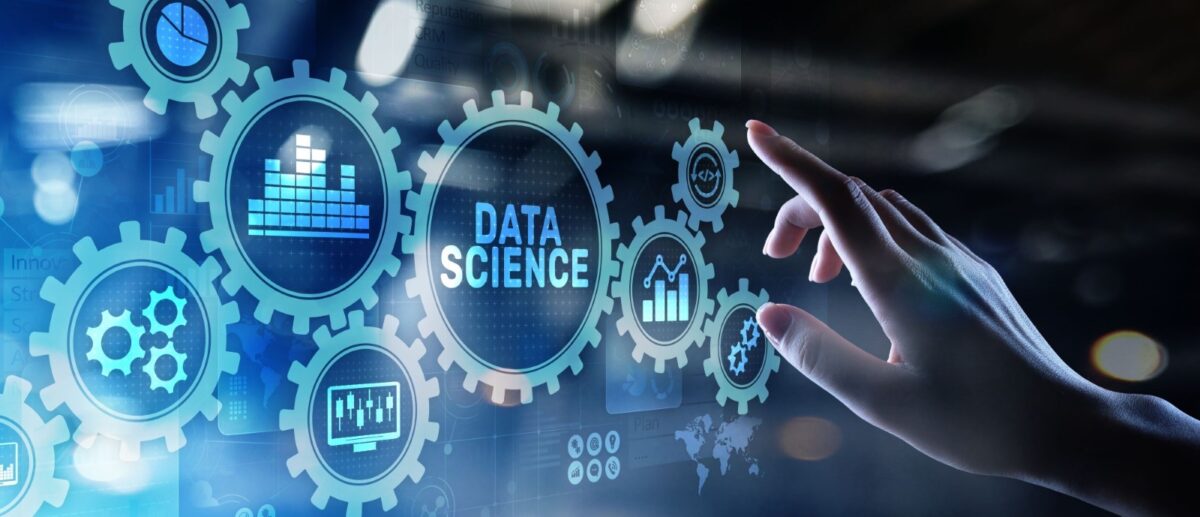Doing Better at Teaching Data for Good: The Data for Good in Education Workshop Series

Higher education plays an important role in preparing people to act as responsible and capable stewards of social good. Further, research indicates that when STEM topics are related to social good, students from a wider range of backgrounds are drawn to STEM fields and retained within them. Yet, STEM educators face many challenges when helping students to link ethical practice to scientific practice.
In response, an interdisciplinary group of data science educators from multiple institutions put together the Data for Good in Education Workshop Series, a collection of intensive day-long workshops that convene data science educators to surface and promote strategies to face the obstacle of grounding data science education in people-centered community-informed practice. The first two workshops have garnered the participation of 75 educators and a third workshop is planned for 2025.
Dr. Dharma Dailey, assistant teaching professor in the School of STEM, is among the organizers of Data for Good in Education Workshop series leading efforts in teaching data for good and shares highlights from the workshop series.
The challenges of teaching data ethics
Attendees gain the opportunity to network with and learn from their peers while workshop organizers map common opportunities and challenges Data for Good educators face. There are different challenges that are surfacing:
- Instructors teaching technical topics feel pressure to minimize time devoted to ethics or considering societal impacts.
- Educators don’t feel qualified to broach ethics in their classrooms.
- Program and resource constraints limit community-engaged experiences and capstone experiences that tie data science to social good.
- No field-level consensus has emerged yet for specifying learning objectives pertaining to the social and human dimensions related to Data Science, nor for designing relevant learning activities or assessing them.
Despite these challenges, the workshops showcase the breadth of approaches to teaching data for good that are being spearheaded by Data Science educators.
Inspiring talks and hands on sessions
At the most recent workshop held at the 2024 Academic Data Science Alliance Annual Meeting in Ann Arbor in October, participants convened for a series of inspiring talks on teaching Data Science with a social good lens, interspersed with interactive sessions. Keynote speaker Dr. Amy Yeboah Quarkume, graduate director of the Master of Science Data Science Program and associate professor of Africana Studies at Howard University, provided insight into designing Howard’s Masters for Data Science and Analytics, an online program that substantively interweaves social good with data science. The program prepares students to engage in real-world data analytics that serve a purpose. For example, one recent student capstone identified analytic discrepancies in air quality assessment in the Mossville community in Louisiana.
In another talk focused on change-making work within existing degree programs, Thomas Arnold, research associate at the Human-Robot Interaction Lab and lecturer at Tufts University, related his experience working in human-robot interaction and ethics to lead a one-year project to more systematically integrate ethics into all computer science courses in the Department of Computer Science at Tufts University.
Dr. Matthew Bui, director of the Race and Data Justice Lab at the University of Michigan, reflected on how community-engaged, collaborative projects may be incorporated into data for good education, drawing on case studies from his current book project, Appetite for Data: Race, Neighborhoods, and Digital Recipes for Racial and Class Solidarity.
Offering insights into what can be done at the course level, Dr. Ben Green, assistant professor at the University of Michigan, shared a framework he has devised for conceiving of and executing data-science for-good projects in his courses that help future data science practitioners view the work of data science as a milestone within a social good project, helping students to make clearer connections between the work that comes before and after a more successful data science intervention.
In considering activities that can be incorporated into a class session or course module, Dr. Karl Schmitt of Trinity Christian College described how he makes use of ethics case studies in his classes. Muhammad Umair of Tufts University led participants through an assessment of case studies being curated and distributed through the Methods for Teaching Ethics in Data Science Workshop.
Workshop organizers & supporters
Dr. Dharma Dailey of University of Washington Bothell’s School of STEM and Naomi Alterman, Technical Education Specialist and Data Science Fellow at the University of Washington’s eScience Institute, are among the organizers of Data for Good in Education Workshop series. Dailey and Alterman draw upon their experience as educators in the University of Washington’s Data Science for Social Good program and Dailey’s prior work through eScience Institute to identify and promote effective strategies for building out Data for Good programs including the Data for Good Growth Map — a resource being used by many educators in this space.
The Data for Good in Education Workshop series is co-organized with faculty from Emory University, Iowa State University, Michigan State University, Montgomery College, Trinity Christian College, University of Notre Dame, and Washington & Jefferson College. Funding for the Data for Good in Education Workshop series has been provided by the National Science Foundation and the Responsible Computing Challenge, a partnership of Omidyar Network, Mozilla, Schmidt Futures, Craig Newmark Philanthropies and Mellon Foundation.
Those interested in the 2025 workshop should contact the organizing committee at data4good.workshop@gmail.com.
